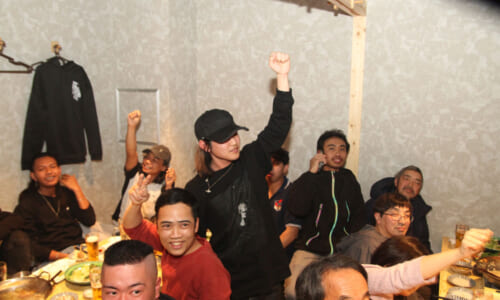The unique lifestyle culture of Japan
Hello! It’s already December! The cold is increasing, how have you been?
Today, I’d like to introduce some important manners to be mindful of in daily life in Japan, especially for the staff of TSK Construction and the Dispatch Department, as well as those who have recently moved to Japan. For those who have just arrived, there might be some confusion due to differences in manners and culture, but with just a little attention, you’ll likely find it easier to settle in. Let’s go through them one by one.
1. Punctuality
In Japan, being late is considered rude. Whether in business or private settings, being on time is extremely important. Even a slight delay can be seen as a lack of respect for the other party. Therefore, when attending meetings or making appointments, be sure to avoid being late and aim to arrive about 5 minutes early. If it becomes clear that you’ll be late, always contact the other party in advance and say something like, “I’m sorry, I will be 5 minutes late.” This helps to give the other person some flexibility and prevents any issues.

2. Trains and Buses
Public transportation in Japan, especially trains and buses, is highly developed, and many people use it daily. Therefore, proper manners on these modes of transport are very important. First and foremost, it is expected that passengers remain quiet while on trains and buses. When conversing with others, try to speak in a low voice and be considerate of those around you. Additionally, when using a mobile phone, it is essential to set it to silent mode. If you want to listen to music, always use headphones and be mindful of the volume to avoid disturbing others. Furthermore, making phone calls in public spaces is considered bad manners. If you receive a call, immediately end the conversation and send a message saying something like, “I’m on the move, I’ll call you back later.”

3. Public Spaces
In Japan, cleanliness and manners in public spaces are highly valued. In public areas such as parks, squares, beaches, roads, and rivers, it is important not to litter. No matter where you go, it is considered common sense to take your trash with you and dispose of it at home. To avoid littering, it is recommended to bring a bag with you in advance. Additionally, activities such as playing music at high volume or setting off fireworks late at night can disturb nearby residents, so these should be avoided at all costs. Maintaining a quiet environment and respecting harmony with the local community are essential parts of Japanese culture.

4. Religious Sensitivity
Japan has a diverse religious landscape, with Shinto, Buddhism, and Christianity coexisting. Shintoism and Buddhism are the most prevalent religions, but there is also a deep-rooted tolerance towards other religions. For example, Christian events such as Valentine’s Day, Christmas, and Halloween are celebrated not for their religious significance, but as commercial events enjoyed by the public. In Japan, it is characteristic that multiple religious and cultural events blend together without a strong bias toward any single religion. Additionally, there is a tradition of visiting shrines and temples, where it is important to behave politely. Furthermore, Christmas and Halloween have unique Japanese elements, and we will introduce more details about them in a future post.

Characteristics of Japanese Lifestyle and Culture
In Japanese society, there is a strong emphasis on prioritizing group harmony over individualism. This is often referred to as “reading the air” (空気を読む), where direct expressions are avoided, and actions are taken with consideration for the other person’s feelings and position. For example, it is important to avoid arguing against others’ opinions and to respect the intentions of those around you. As a result, conversations often involve aligning with the opinions of others, and there is a tendency not to assert oneself too strongly. In this culture, reading the atmosphere is crucial, and in some cases, careful word choice is required to communicate effectively.
References
(*1) U.S. Department of State. (2022). International Religious Freedom Report (2022 Edition) – Japan Section. U.S. Embassy & Consulates in Japan Official Website. Retrieved from: https://jp.usembassy.gov/ja/religious-freedom-report-2022-ja/
関連記事
-
 2025/05/22Our Approach to M&A and Strategic PartnershipsAs a construction company specializing in ground improvement, slope protection work, and various types of plant facility construction, we are actively pursuing strategic M&A and business alliances to enhance our corporate value and achieve sustainable growth. In today's rapidly changing environment—marked by shifting social needs, a declining workforce, and technological innovation—we recognize the limitations of growth through standalone efforts. M&A as a Growth Strategy We view M&A not merely as corporate acquisition, but as a means of business expansion that leverages the strengths of both parties. By integrating with companies possessing advanced construction technologies and specialized expertise, we aim to...
2025/05/22Our Approach to M&A and Strategic PartnershipsAs a construction company specializing in ground improvement, slope protection work, and various types of plant facility construction, we are actively pursuing strategic M&A and business alliances to enhance our corporate value and achieve sustainable growth. In today's rapidly changing environment—marked by shifting social needs, a declining workforce, and technological innovation—we recognize the limitations of growth through standalone efforts. M&A as a Growth Strategy We view M&A not merely as corporate acquisition, but as a means of business expansion that leverages the strengths of both parties. By integrating with companies possessing advanced construction technologies and specialized expertise, we aim to... -
2025/02/04✨ Earn ¥1162/hour! 🧴 Shampoo Factory Work – Flexible Shifts! 📅Job Description 🏭 Work in a Shampoo Manufacturing Factory! 🧴 We need reliable staff for: 🧴 Shampoo Container Setup: Preparing the shampoo bottles for filling. 📦 🔍 Quality Inspection: Checking the filled bottles for defects. ✅ 📦 Packaging: Packing the shampoo bottles into boxes for shipment. 🚚 This is a spot dispatch (temporary staffing) position, so you'll work when extra help is needed! 👍 Salary 💰 Day Shift Hourly Wage: ¥1162 💴 💰 Night Shift Hourly Wage: ¥1162 💴 🚌 Transportation: Actual transportation costs reimbursed. 💯 Working Hours ☀️ Day Shift: 8:30 AM – 8:30 PM ⏰ 🌙 Night Shift: 8:30 PM – 8:30 AM ⏰ 🗓️ Working Days: Monday, Friday, Saturday, Sunday (Spot Dispatch - as...
-
2024/12/18How many concerns do you have at your current workplace?Check what applies to you. ✅I struggle to speak Japanese. ✅I cannot use my native language in interviews. ✅I want to become a full-time employee. ✅I don’t know what job suits me. ✅I get corrections on my Japanese at work. ✅I want to work for a short period. ✅I feel uneasy because I don’t understand the contract. ✅I don’t know anyone familiar with Japan. ✅I want an advance payment system. ✅I want to start working immediately. ✅I don’t have anyone to consult with. ✅I want support for my job. If you checked three or more, it might be time to...
-
 2024/12/18【Company Event】We Held Our 2024 Year-End PartyHere’s the English translation of your text: At TSK, we recently held our annual "Year-End Party" to mark the conclusion of another year. The event was a lively gathering attended by many, including our valued business partners and professional fighters who share close ties with our company. The host for the evening was Shishimaru Jinguji, a comedian from Ohta Production. Despite finishing his duties as a ring announcer earlier that day, he made his way to our event and did a fantastic job energizing the atmosphere! The event kicked off with a toast led by our Sales Manager, Mr. Shimizu....
2024/12/18【Company Event】We Held Our 2024 Year-End PartyHere’s the English translation of your text: At TSK, we recently held our annual "Year-End Party" to mark the conclusion of another year. The event was a lively gathering attended by many, including our valued business partners and professional fighters who share close ties with our company. The host for the evening was Shishimaru Jinguji, a comedian from Ohta Production. Despite finishing his duties as a ring announcer earlier that day, he made his way to our event and did a fantastic job energizing the atmosphere! The event kicked off with a toast led by our Sales Manager, Mr. Shimizu.... -
2024/12/17【1,430 yen/hour】 – Limited 4-Day Opportunity!🍰🎅Join Our Christmas Cake Production Team! Location: Miyoshi Town, Iruma District, Saitama Prefecture Work for just 1 day if you like! 【Job Description】 No experience? No problem! Simple and easy tasks for everyone. ・Tasks include removing strawberry stems and attaching cake films – easy to learn and fun to do! ・Perfect for those who enjoy focusing on their work. ・Friendly senior staff will guide you, so you can work with confidence! ・Team members range from young adults to mid-career staff – everyone’s welcome! 【Work Period & Hours】 4-Day Limited Job! (12/20–12/23) Feel free to join for just 1 day if...

